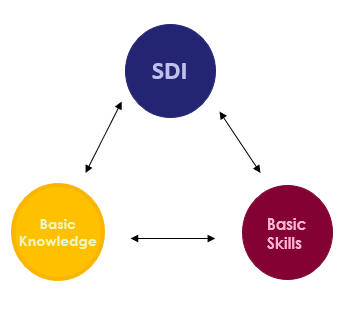Mathematics
We have adopted a mastery approach for the teaching of mathematics. This allows all pupils to move through the programmes of study at broadly the same pace. Underpinning this, is the belief that all pupils can achieve in maths. It will maximise the potential of every pupil’s ability and academic achievement. It will develop their confidence and competence.
Our main aims for all pupils are:
- To become fluent in the fundamentals of mathematics.
- To be able to reason mathematically
- To successfully solve problems by applying their mathematics knowledge
Our intent is that pupils who grasp concepts rapidly should be challenged. They will be offered rich and sophisticated problems before any acceleration through new content. Those who are not sufficiently fluent with earlier material should consolidate their understanding. This is done through the Same Day Intervention (SDI) model. This model forms part of our overall approach to maths which reflects our key aims.

Mathematical skills are knowledge are embedded within maths lessons. They are developed throughout the school consistently over time. We are committed to ensuring that mathematics mastery places emphasis on building essential knowledge and skills in mathematics year on year. We ensure pupils have access to a range of physical, manipulative and pictorial resources to help them apply their learning. Pupils have an understanding of how maths is essential to many aspects of everyday life.
We strive to have a culture where the pupils have a love of maths. We do this by inspiring pupils’ curiosity about the subject through challenges and the wider curriculum.
We encourage and develop our pupils’ knowledge of times tables. We introduce exciting ways to learn these facts. The pupils enjoy participating and challenging themselves and others. The use of supporting resources helps to build competitiveness and drive the pupils to learn these basic skills. These are then woven into their daily life within school and it is our intent that pupils are fluent in times tables up to 12 by year 4.
Maths is taught progressively and sequentially across the academy and begins the moment they begin in Nursery with each step on the mathematics journey carefully planned. .
In the Foundation Stage, we know that pupils should be taught through practical ‘hands on’ learning experiences. There is a focus on mastery of early number. Frequent and varied learning opportunities right across the setting allow pupils to develop an understanding of relationships and pattern. They begin to reason about number, and problem solve through practical activities.
In EYFS, pupils are also provided with opportunities to develop their fluency. and introduce reasoning and problem solving skills in number, shape, space and measure. They will use provision to master these areas of learning. They will apply this to a wider curriculum to observe and discuss mathematical findings in their play. We want our pupils to be confident and happy learners and set the foundations for their learning to build on this in later years.
SDI
In Key Stage 1 and Key Stage 2, we use a way of teaching maths called Same Day Intervention (SDI)
SDI works perfectly to meet the needs of our pupils. By teaching using the SDI strategy, there are opportunities;
- For direct teaching, modelling and scaffolding
- For all pupils to work independently, in pairs or in groups
- For all pupils to develop procedural fluency, varied fluency and reasoning and problem solving
- For teachers to assess understanding and progress before either re-teaching, consolidating learning or extending pupils, on the same day
- To use structured models and images across the lesson
In Key Stage 1, our aim is to ensure that pupils build on the fluency, reasoning and problem solving. we want them to have confidence and mental fluency with number, space and measure. Pupils will have different opportunities within the sessions to use a range of methods that allow them to be effective learners. They will move to Key Stage 2 with the next step of applying their knowledge to more complex problem solving. This means they can then begin to apply to deepen their understanding.
In Key Stage 2, our intent is that pupils will build on their prior learning to help them master approaches and solve sophisticated problems. We ensure that all pupils continue through the key stage, on their mastery journey, with curiosity and excitement. We ensure this is frequently applied in their lessons. Our mission is for all pupils to successfully leave our academy prepared to continue on their mastery journey.
Maths in Early Years
- Nursery MTP Year Overview
- MTC Nursery Progression Document
- Nursery Rhyme and Book List for Nursery Maths Scheme
- Reception Autumn Overview
- Reception Spring Overview
- Reception Summer Overview














